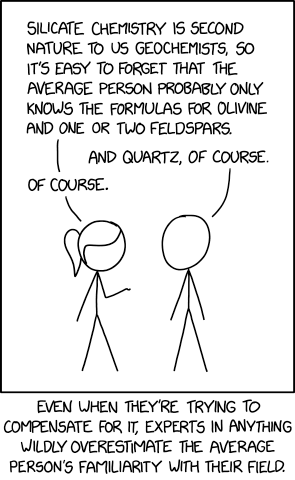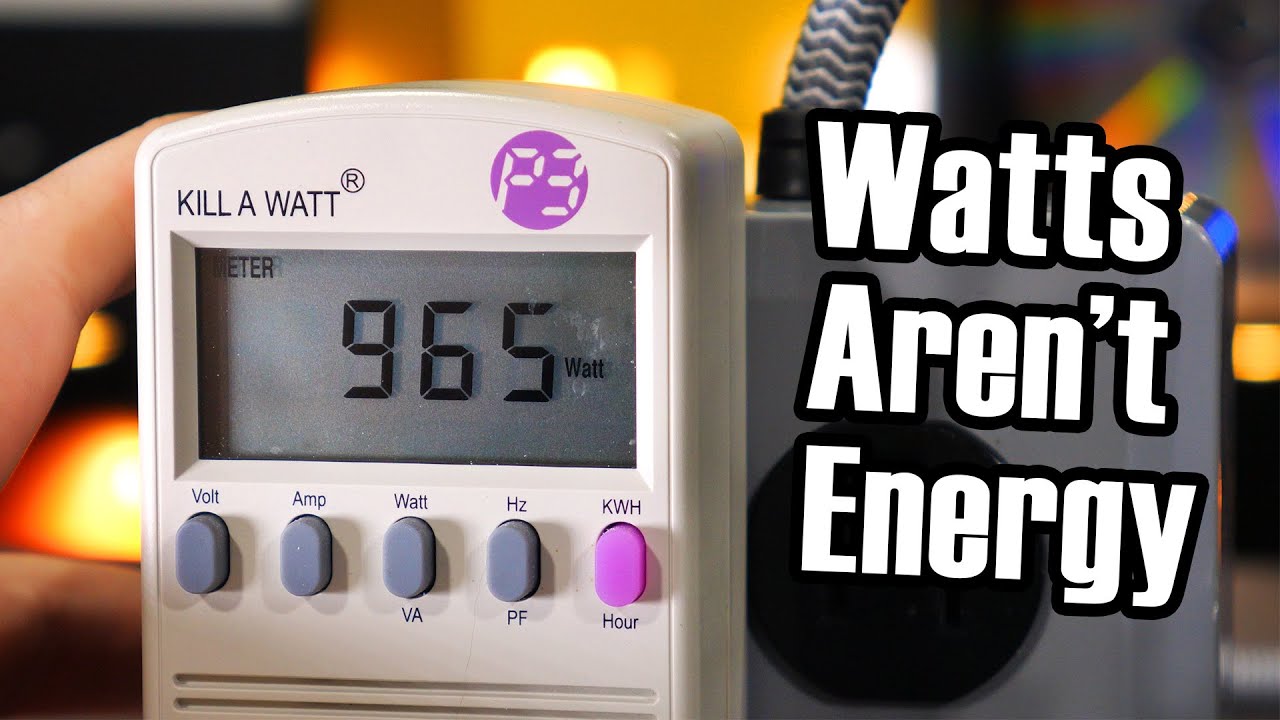So, Alec over the Technology Connections channel made an hour long video explaining the difference with kW and kWh (obviously with other stuff around it).
I’m living in northern Europe in an old house, with pretty much only electric appliances for everything. We do have a wood stove and oven, but absolute majority of our energy consumption is electricity. Roughly 24 000 kWh per year.
And, while eveything he brings up makes absolute sense, it seems like a moot point. In here absolutely everyone knows this stuff and it’s all just common knowledge. Today we went into sauna and just turned a knob to fire up the 6,5kW heaters inside the stove and doing that also triggered a contactor to disengage some of the floor heating so that the thing doesn’t overload the circuit. And the old house we live in pulls 3-4kW from the grid during the winter just to keep inside nice and warm. And that’s with heat pumps, we have a mini-split units both on the house and in the garage. And I also have 9kW pure electric construction heater around to provide excess heat in case the cheap minisiplit in garage freezes up and needs more heat to thaw the outside unit.
And kW and kWh are still commony used measurement if you don’t use electricity. Diesel or propane heaters have labels on them on how many watts they can output right next to the fuel consumption per hour and so on. So I’m just wondering if this is really any new information for anyone.
I assume here’s a lot of people from the US and other countries with gas grid (which we don’t really have around here), is it really so that your Joe Average can’t tell the difference between 1kWh of heat produced by gas compared to electricity? I get that pricing for different power sources may differ, but it’s still watt-hours coming out of the grid. Optimizing their usage may obviously be worth the effort, but it’s got nothing to do with power consumption.
So, please help me understand the situation a bit more in depth.
I think you are greatly overestimating the basic functional knowledge of the general public…
If you think the average person understands watts, you live in a bubble, straight and simple. You have a very skewed notion of the average person.
We live in a world where people demanded (and succeeded) in having the Meteorological Service of Canada to report windchill as “feels like C” instead of, ya know, a measure of actual heat loss in Watts / M^2 / s
You say that like it’s a bad thing? I prefer not to dust off my slide rule everytime I want to know how cold it is out.
Yeah, just give me actual temp and wind speed, and I’ll get a feel for what’s cold by going outside.
The first time they did the feels like scale… My father’s colleagues were involved. They took a sample of people and put them in wind tunnels and sprayed them with water and said hey how’s it going over there.
I wish more than anything I was joking right now.
In here absolutely everyone knows this stuff and it’s all just common knowledge.
Absolutely not. Not even close.
New Technology connections video drops:

I’m going to go buy a kill-a-watt.
Do it, it teaches you things.
Most of your power isn’t going where you think.
Oh I love this stuff.
My dishwasher pulls over 1000W, but overall actual usage pales in comparison to my server cluster, which utilizes a multiple 35W mini PCs.
I started measuring a bunch of things in February (using zigbee-compatible smart plugs to HA), so here is a graph of the above for the entire month of March:

It was eye opening, to say the least.
Yeah, my rack is a beast too, especially since it runs 24/7.
I have PGE though, so I get absolutely reamed constantly, they play a lot of games so my solar helps me as little as possible.
Oh, I had a whole-house meter connected to my smart meter by zigbee, but then PGE disabled that a few years ago.
Worst part of california :(
I moved into a tiny home and got one for measuring the current draw of my kitchen appliances and keeping track of the cost of my electric space heater ($40/month so far, yeesh)
I’m over here heating water in a kettle because of Technology Connections (and also pre-heating my dishwasher)
Its the midwest pragmatism that sells it.
I just do what he says because it sounds so practical.

is it really so that your Joe Average can’t tell the difference between 1kWh of heat produced by gas compared to electricity?
Yup.
I totally understand electricity because it’s pretty intuitive. Everything is advertised in watts, my bill comes as kilowatt hours, so it’s pretty easy to calculate how much energy something uses by plugging in a kill-a-watt and measuring it.
My gas is billed in therms. I don’t really know what that is, nor do I know what the flow rate is for my furnace or gas stove, so I have no concept for how much energy I’m using. I don’t have an electric one to compare with, so I that’s not an option either. So how exactly would I get to the point where I would be able to compare the two without a lot of annoying testing? Even then it would be extremely imprecise.
And no, it’s not “watt hours coming out of the grid,” except in the pedantic sense that they can be converted. They come from very different sources, so it’s like comparing an EV to a horse, and while you could, it’s completely nonsensical.
But yes, at some base level your average American knows there’s a connection between the two (after all, I can choose between electric heat/heat pump and a gas furnace), but they’d rely on an expert to estimate the monthly price difference between options, since that’s ultimately what we care about. The problem is mentioned near the end of the video, HVAC experts don’t seem that familiar w/ heat pumps, so you may not get a decent estimate, depending on who your technician is. And that adds to the misinformation.
In here absolutely everyone knows this stuff and it’s all just common knowledge.

Fair point, but basic physics has been a part of our education program for at least 60 years. Also for few years the ‘exchange priced’ or ‘market valued’ electricity has been somewhat popular and on the news, which adds up to the general understanding as if you know your stuff it means quite literal money as your bills are smaller. So, maybe ‘absolutely everyone’ is a bit of a stretch, but in general the majority of adult people understand the concept.
And also a ton of common folk understand it at least a bit on a deeper level as basic physics is included to studies beyond elementary school regardless on what you study. Sure, not everyone understands (or cares) how 3 phase AC in here adds up to 400V or why you need to have 2,5mm² wires for 16A fuse, but it’s still pretty common that people, specially in a separate house, understand how you can only pull 2300W out of a 10A circuit or 3600W from a 16A one (10 and 16A being the most common fuses in a household in here).
Power is water throughput in a pipe, energy is water filling a bucket. Simplest way I’ve found to explain it in my 15 years in the energy space.
Power is a measurement of the velocity and volume of water flowing through a pipe at a given instant*
I’m so sorry, I am officially ‘that guy’, taking a simple analogy and making it annoying…
Lol you’re completely right of course but when you start adding all this it is less relatable to someone who is not familiar with it already
I think it’s simple enough without even using analogies to explain. The unit Watt is Joules per second. Multiply by units of time and you get the total units of energy in Joules. Watt and Watt Hour are just that with without the additional units showing or being simplified.
After watching the video it was a bit over explained. I think he got his point across in the first 10 minutes, though I am an engineer by trade.
I appreciate his rigour in explaining and it is a good refresher on the power/energy calculations.
Saved you a click: power = rate of energy use (energy/time)
He says it so many times in so many ways that he actually starts to make it seem more complex than it is. You start wondering if you’re missing something, because you got it in 6 seconds but 12 minutes later he’s still talking about it.
deleted by creator
deleted by creator
Yeah, electric motors are what I notice the most. Be it on washers/dryers, garbage disposals (which range from 1/3, 1/2, 3/4, 1HP) and more.
Also check out his other video on his Connextras channel where he basically suggests dismantling capitalism.
So I’m just wondering if this is really any new information for anyone.
It’s never wise to underestimate most people’s ignorance.
Full disclosure, I didn’t watch the video yet, but it’s likely a difference of environmental impact.
He’s described in previous videos how burning gas at home is less efficient from the standpoint of a carbon footprint. I imagine this video is to help explain everything in a way that helps you come to that conclusion yourself. Teach a man to fish instead of just giving a fish and what not. So you can apply the knowledge to other things in your life
People complaining about this video have clearly not watched much Technology Connections; I enjoyed it immensely. It’s right in line with how Alec normally does his videos. We who are loyal to the Great Alec expect the pedantic content.












